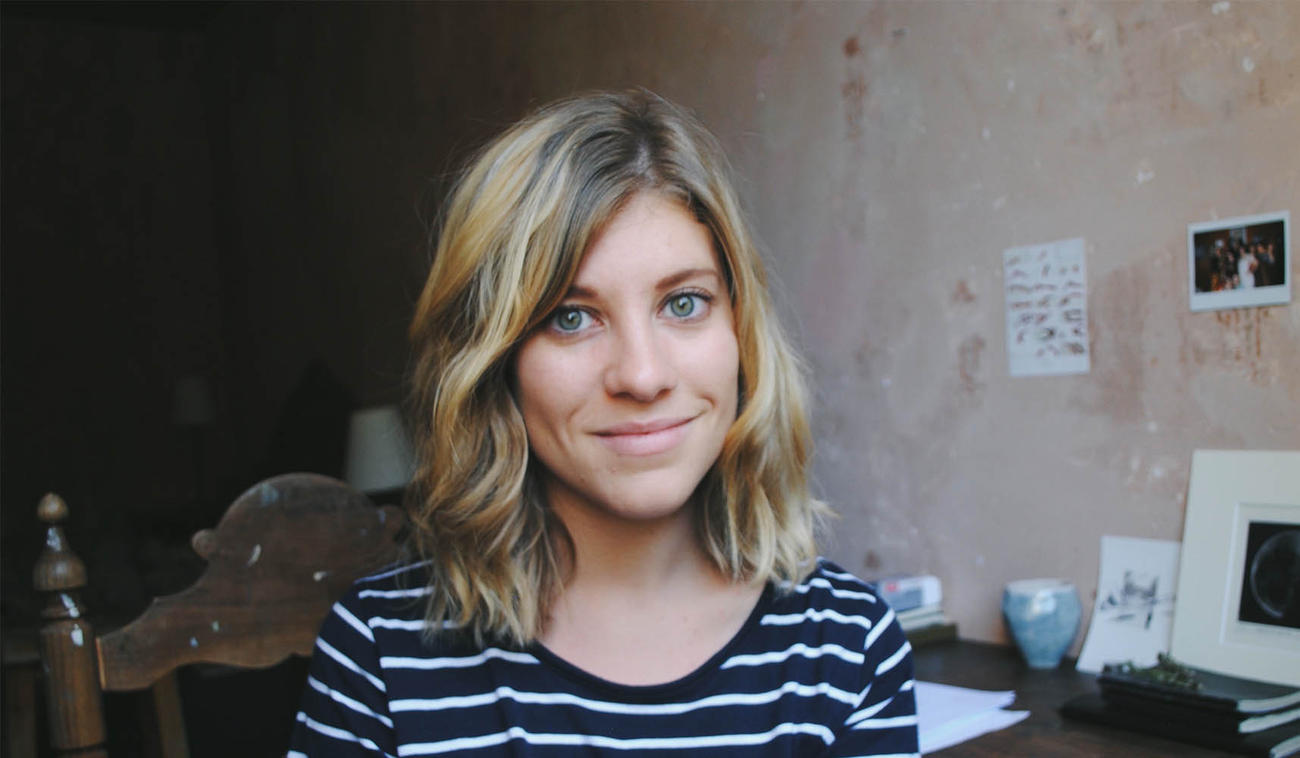
Jennifer Down’s debut novel, Our Magic Hour, was picked up by Text after being shortlisted for the 2014 Victorian Premier’s Literary Award for an unpublished manuscript. Carrie Tiffany describes it as a novel that contains ‘all the rapture and calamity of youth’, and Jennifer Down as ‘a writer of rare insight and heart’. Here Jennifer answers some questions about her writing and inspirations.
Why do you write?
It’s partly in order to give shape to things—to pin down anxieties so I can examine them and make sense of them. And partly out of routine. ‘Compulsion’ is a strong word, but I’ve done it since I was a kid.
Can you tell us a little about the inspiration behind Our Magic Hour?
I think the story grew out of the characters. It started with a few microscenes about relationships—the triangular relationship between the three childhood friends; the decaying romantic relationship; the filial relationship between the main character and her parents—and I built the rest of it around that.
You’ve been working on this book for quite some time. How has it changed from those initial stages to the finished product?
In some ways it was like the start of an apprenticeship that’s still going. I got more confident with voice. When I look at the early drafts from five or six years ago, it’s much stiffer and less certain. Parts of it read almost like a screenplay. I think, too, when you sit with characters for that long, you necessarily have a much fuller understanding of them, which makes you more comfortable with writing their ugliness and failings.
How does it feel to now have a physical book with your name on the cover?
More exciting than I expected! I didn’t think I’d be so thrilled to hold it, but there’s something satisfying about having a tangible result when so much of your work as a writer is invisible.
What makes young friendships, like the friendship shared between your central trio, so interesting to you? How do you think these relationships define us as individuals?
Young friendships, and particularly childhood friendships that survive into adulthood, are so beautiful and strange. You’ve witnessed one another’s growing-up; you know one another’s emotional climates and bodies and parents and family memories. It’s terribly intimate. And because of that you forgive much more, I think. There’s an elasticity to those relationships that’s almost sibling in nature.
Our Magic Hour explores grief and loss with great intelligence and nuance. Why did you want to explore these themes when so many prefer to keep such experiences private?
I’m fascinated by the metamorphosis of grief—both how it changes with time, and how it changes people. It’s this primal, universal thing, and yet everyone experiences it differently. I don’t think it’s taboo, exactly, but it’s difficult to talk about, so there often seems to be lot of space around it.
Melbourne and Sydney are almost characters themselves in Our Magic Hour. You’ve travelled a lot and completed writing residencies all around the world, from Penang to El Bruc in Spain. How does place affect your writing? Do you need something particular from your own setting in order to write?
Setting is almost as crucial as character for me. I find it tough to begin a story unless I’ve got a clear idea of its geography, its weather, its light.
I’m not fussy about where I write, although I can’t do it surrounded by people at a café or whatever—I get very self-conscious. But I get enormous energy from moving around, new places and being outdoors.
Are there any particular literary influences that helped shape Our Magic Hour?
I really admire control over language—not necessarily minimalism, but precision. Helen Garner’s The Children’s Bach, Denis Johnson’s Train Dreams and Richard Ford’s Wildlife stick out in my memory, but I learn something from every book I read.
Why do you think Australian voices, especially female ones, remain so important to the literary landscape?
It’s important to be able to recognise oneself in books.
As a young debut author how do you hope the Australian literary scene will evolve in years to come?
I hope we see much greater diversity—both in terms of the narratives and voices being published, and the people involved in publishing decisions. There’s a dearth of books by Australian writers of colour, by LGBTQI writers, by writers from migrant and working-class backgrounds. I think we’re starting to move in the right direction, but it’s slow going at the minute, and by and large our bestseller lists and prize shortlists are reflective of that. I’d really like to see that shift.
Our Magic Hour is published next Wednesday 24 February.



